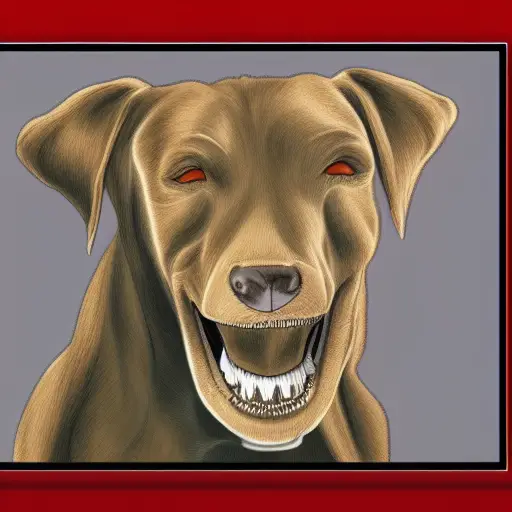Your Yorkie may have one or more dental problems, and it may be time to see a vet. These dental problems can include overcrowded jaws, periodontal disease, and pain from tooth decay. These issues can cause severe discomfort in your dog, and should be treated right away. You can read more about these dental problems below.
Problems caused by food stuck in between teeth
The problem of food stuck in between the teeth of your Yorkie can be very painful for your pet. This problem can result from several factors, including a buildup of plaque and bacteria on the teeth. In severe cases, you may have to extract the teeth of your Yorkie. Thankfully, there are some simple solutions to this problem.
First, you should check if your dog is drooling or not showing much of an appetite. If you notice that his or her teeth are loose or don’t have much bite, this can also be a sign of dental problems. This condition can also result in pain or infection.
You should also check your dog’s breath for signs of dental problems. If it has an unpleasant odor, it could be an indication of tooth decay or infection. Your dog may also stop eating as much as it used to or may spit out food. When you notice any of these symptoms, you can visit your vet to get your dog’s teeth cleaned.
It’s important to visit a vet as often as possible to keep your dog’s teeth healthy. Veterinary dentists recommend annual visits to clean your dog’s teeth. These visits should also include an x-ray of your dog’s mouth. This will help determine if there are any cavities or fractured teeth.
Periodontal disease
Periodontal disease is a common problem among dogs and can severely affect your pooch’s oral health. It affects the gums, supporting structures around the teeth, and the bones that support the teeth. Fortunately, it can be prevented. To keep your dog’s teeth and gums healthy, you must take good care of them and see a veterinarian for proper treatment.
Yorkies are susceptible to periodontal disease because of their small mouths and snouts. As a result, food can be easily trapped between the teeth and mouth. The food becomes mixed with saliva and bacteria and starts to build up on the teeth, which results in the formation of plaque and tartar.
Researchers have found that brushing the teeth can significantly reduce the risk of periodontitis in Yorkshire terriers. One study showed that the effects of brushing the teeth decreased the number of periodontitis teeth in Yorkshire terriers by 70% after 6 months. The study’s authors also used data from a previous study of miniature schnauzers to determine the prevalence of periodontitis among dogs.
Yorkshire terriers have a high incidence of periodontal disease, with a high percentage of dogs having signs of periodontitis at younger ages. The most common types of teeth affected are molars and premolars. At least one third of dogs will have periodontitis in their lifetime, and the incidence increases with age.
Several factors contribute to the development of periodontal disease in dogs. Poor dental hygiene, genetics, and malformed bite all increase a dog’s risk. Brachycephalic breeds are especially susceptible to this condition. Full mouth x-rays and examinations of the gums will help vets diagnose periodontitis. Visiting a veterinarian for regular cleanings will prevent periodontal disease from progressing.
Overcrowded jaws
A Yorkie’s overcrowded jaws make it more susceptible to dental problems. Overcrowded teeth and small jaws lead to increased plaque and tartar buildup, which can eventually cause tooth decay and gum disease. Regular dental visits and brushing can help prevent these problems. Routine dental visits will also keep your Yorkie from suffering from painful dental problems.
Often, a Yorkie will have two of the same type of teeth in one or more of its jaws. This is known as ‘double teeth syndrome’ and is a common problem in this breed. The teeth will look like an extra row behind the primary ones. If left untreated, this condition can lead to a painful malocclusion.
A Yorkie with a perfect scissor bite can have a perfect mouth, but this condition is not always present in all breeds. Breeding two adult Yorkies can produce a perfect scissor bite. However, not all Yorkies develop the perfect scissor bite, and there are also other types of abnormal jaws. Some Yorkies have an overshot or undershot jaw, while others have an undershot or level jaw.
Overcrowded jaws in a Yorkie can lead to many dental issues. The extra teeth and baby teeth can lead to more cavities and gum disease. In addition, a crowded jaw can also affect your Yorkie’s digestive system, causing your dog to be unable to eat properly. This problem can also result in hypoglycemia.
If you’re worried about your Yorkie’s bite, he may need an x-ray. The scan will determine whether his jaws are aligned properly. If your yorkie’s jaws are overcrowded, he may have a malocclusion. A class II malocclusion is when the lower jaw is overshot. A level jaw, on the other hand, means the upper and lower jaws are directly in line.
Pain from tooth decay
Pain from tooth decay in a Yorkie may be accompanied by other signs, such as swelling around the jaw, pawing at the nose, or discharge from the nose. This type of dental problem requires immediate attention and may require a trip to the vet. In some cases, the condition may be caused by a more serious condition. In this case, sedation may be necessary. Afterward, you can implement an at-home dental hygiene routine for your Yorkie.
Tooth pain is a major cause of distress in any dog, but it’s especially distressing for dogs. The pain you feel when you see your dog’s teeth hurt is a clear indication that something isn’t right. Despite the pain, animals have adapted to deal with the discomfort associated with tooth decay. While pain medication can ease the discomfort, it won’t treat the underlying dental disease.
When a dog’s teeth are painful, you may notice a lack of appetite and a toothache. Occasionally, you may notice your dog spit out food mid-chew. These are all signs that your dog is suffering from tooth decay. Your vet can conduct an oral exam to rule out more serious issues. If you notice one of these symptoms, contact your veterinarian immediately.
You should also pay attention to any drooling in your pet. Though it is normal for a dog to drool, constant drooling indicates pain. Moreover, you should note if your dog is hiding away or isolates himself. It may also become irritable or sleep more to escape the pain.
Proper dental care is very important for your Yorkie. Your Yorkie should get regular teeth cleanings at least once a year to avoid more severe dental problems. Advanced periodontal disease may require multiple oral extractions and surgery. As such, it is important to consider a pet health insurance plan or veterinary discount plan. Eusoh or PetAssure are two options that can help.
Double teeth syndrome
If your Yorkie has two sets of teeth, you may be worried that they will develop dental problems. The good news is that these extra teeth are temporary and will eventually fall out. However, they can lead to dental decay, gum disease, and early tooth loss. This is because retained primary teeth are not fully mineralized, and they are more likely to fracture when chewing. This can cause infection and pain. The extra teeth can also lead to jaw problems.
If your yorkie has multiple sets of teeth, your vet may be able to extract one of them to correct the condition. This is a common procedure for a dog with double teeth. It is important to get the problem treated as early as possible to avoid further complications later on. In some cases, the condition may be caused by retained deciduous teeth. In this case, the teeth have not yet erupted or have shifted to one side, making them appear like two rows of teeth.
Dental disease is a common cause of tooth loss in Yorkies. It can be painful and expensive to treat, so dental care is very important for Yorkies. To help keep your pup’s mouth healthy, brushing the teeth with special dog toothpaste is essential. You should also take your Yorkie to the vet for a biannual oral exam. If you do not clean your dog’s teeth properly, tartar buildup can develop, and minor decay or calcification may occur.
The extent of periodontal disease in Yorkshire terrier dogs is still unknown. However, there have been studies in the past that have shown a close correlation between age and degree of periodontitis.












